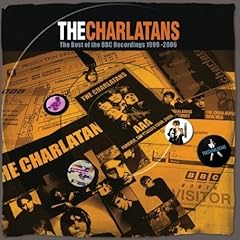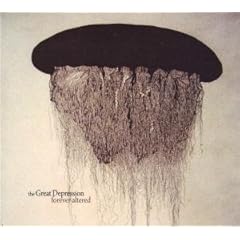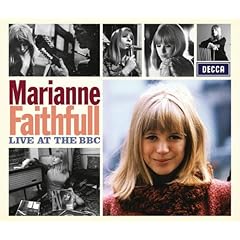So, Dragons Den is back - for what we suspect will be the last time, as not only are the early mornings presenting Today taking their toll on Evan Davies (the poor lamb looked zonked yesterday) but the Dragons themselves seem to have latched on to the idea that the show is about how great they are. Theo is clearly paying Barry Cryer's understudy to write his "I'm out" quips - "I won't sit on the fence" to the people selling eye-gouging garden fence covers, for shame; and there's far too much time spent on dull cock-comparing horsetrading when they all try and invest in the same people. I don't watch to see Peter Jones and Duncan Bannatyne arguing over five per cent of the ownership of a start-up, I want to see people trying to push their ideas of lifejackets made out of sugar ("so you can lick it a bit to keep your energy up while waiting for rescue, like...").
The new series kicked off with something of a diversion: a musical guest, Hamfatter. Although already successful, Hamfatter wanted money to cut a new album. We say "successful", but it all depends how you measure it. A previous record had achieved "number thirteen in the indie charts" - which, if that's a yardstick, makes Marc Riley And The Creepers something akin to The Beatles in terms of succes - and the last single was "number three in Austria." "Bizarrely enough" allowed the singer, with a look dawning on him that maybe the person who rang up and said "Vee haff zee gut news fur du, ja?" that time did sound a bit like his mate Spiggy.
In addition, that single had got to number fiftysomething - in a week when a single by Razorlight "marketed by the biggest record label in the world" - could only manage eighteen. [UPDATE: *]]
We'd have kept quiet about that, to be honest - if all the experience and marketing muscle of a major label and the never-knowingly-shirted charms of Johnny Borrell couldn't push a slab of unwanted plod-indie into the top ten, what chance did this bunch have, even with all the skills of the dragons? Deborah Meaden, in a bid to establish her credentials in the music world offered a relative who was a producer and, somewhat bizarrely, that her "sister-in-law did PR for AOL." We'd love to see what ideas she came up with for them - "why not send everyone in the country thousands and thousands of CDs until you run out of money", presumably.
It wasn't to be, though, for after an interminable period of different dragons yelling "me! me!", we looked up from the Guardian Crossword to see them shaking the hands of Peter Jones. We're sure there was a shrewd business case for choosing his advance, and it wasn't just a case of "dude - that's the guy with the Gremlins in the TV ad... he's cool..."
As a result of their appearance, Hamfatter are now being seen not so much as an alright-sounding-if-you-like-that-kind-of-thing indie outfit with a terrible name - a truly, truly, my-god-they-must-all-be-dyslexic-because-surely-the-moment-you-see-that-written-down-you'd-change-it name - but instead like some sort of experts in the field of the post-physical music industry.
They're happy to admit, though, that they're not:
Jimbo - They thought we were being clever by not offering a percentage of the money made from live performances, but really we just hadn't thought of it.
Also enjoying a bit of publicity from the programme is
Feargal Sharkey who the BBC asked for a comment or two on the deal.
By nature, the music business is entirely entrepreneurial, whether that's an emerging artist trying to build their profile and selling homemade CDs at gigs, to a major label or promoter with a multi-million pound marketing budget.
The music business is entirely entrepreneurial - unlike, then, banking or selling laptops where much of the business is about dancing.
Actually, it's not even true - music is one of those industries where no amount of entrepreneurial nous will save a CD from heading for landfill if it fails to capture the public's imagination. And a lot of punk music businesses are not entrepreneurial but based on co-operatives.
We're not sure that we agree with this, either:
These tensions have always been at the heart of music, certainly for the last 50 years. The best pop music is often high commerce and high art all at the same time.
Surely the best pop music - in the strictest sense of the word - has very little to do with high art, which is by its very nature exclusive, isn't it?
Still, concerns of pop and high art - especially high art - aren't going to cloud over Hamfatter's day. They have got Peter Jones' cash in their pocket book, and are even now sitting in marketing meetings saying "...well, no, we
like the name..."
* - Someone in the comments has pointed out that apparently they'd grunted that Razorlight had got to number 80, rather than 18. We suspect it must have been a Hamfatter fan, and although it's mildly amusing the only piece they could quibble with was because the band were mumbling and inaudible, but that just makes it worse - it means they were choosing the example of Hold On, a single which, far from having the full force of a record label behind it, barely got any promotion at all. I'm given to understand there wasn't even a video made for the release. It's like claiming to have beaten Man United in a football match, and hope nobody notices it was the under-16 reserves team.
back to top
















